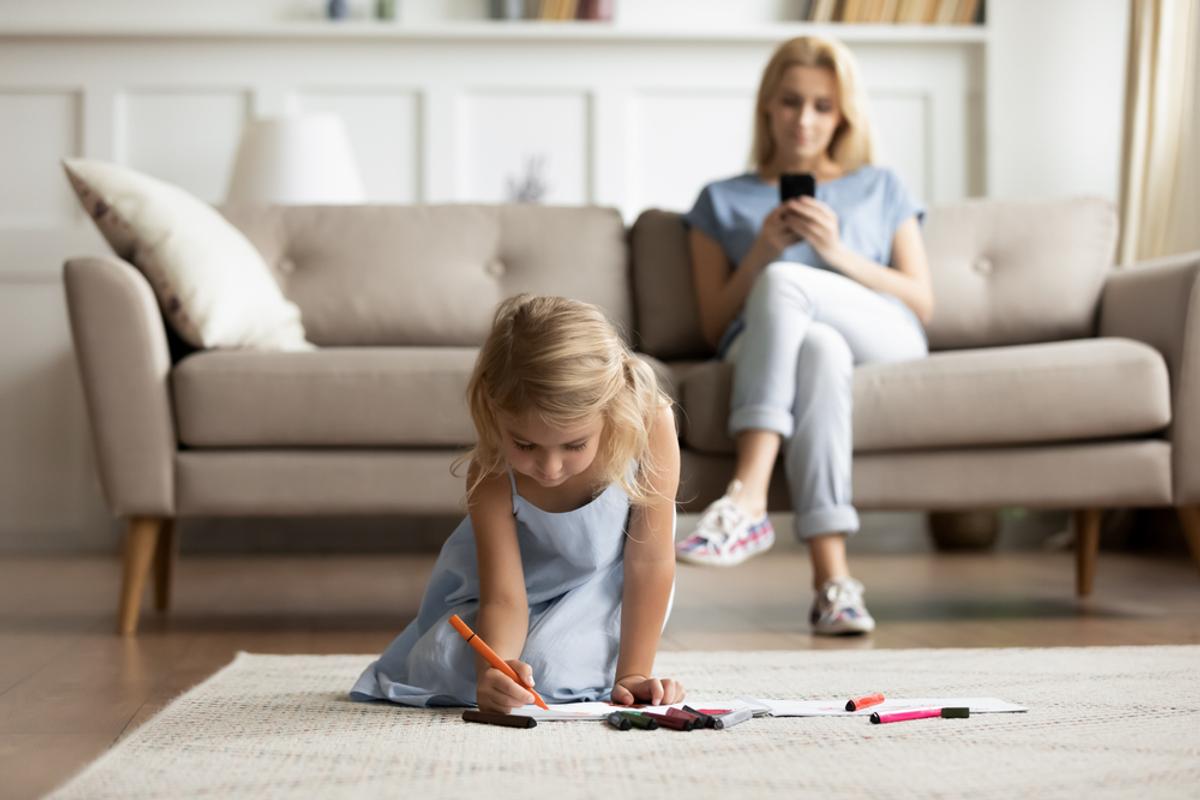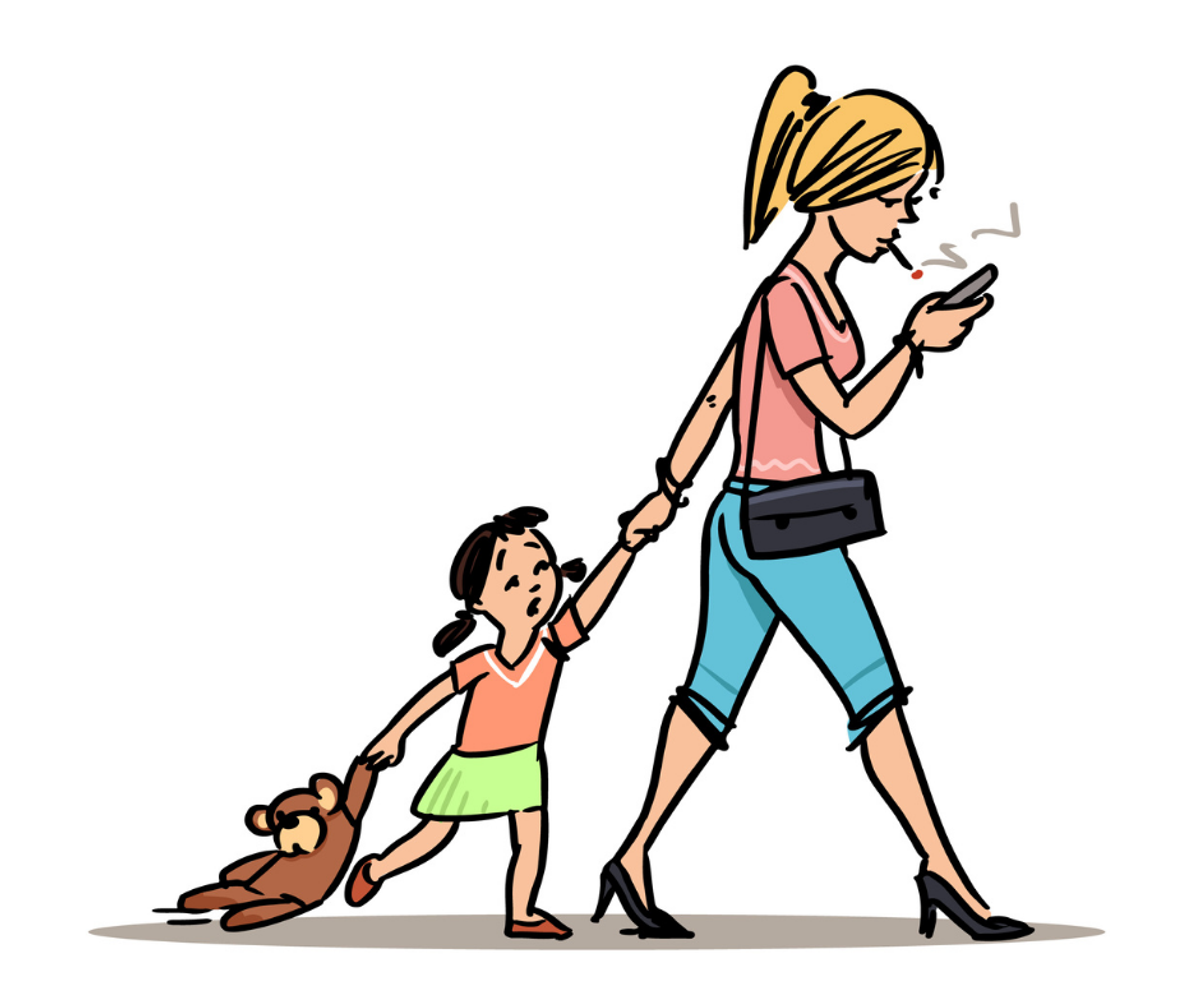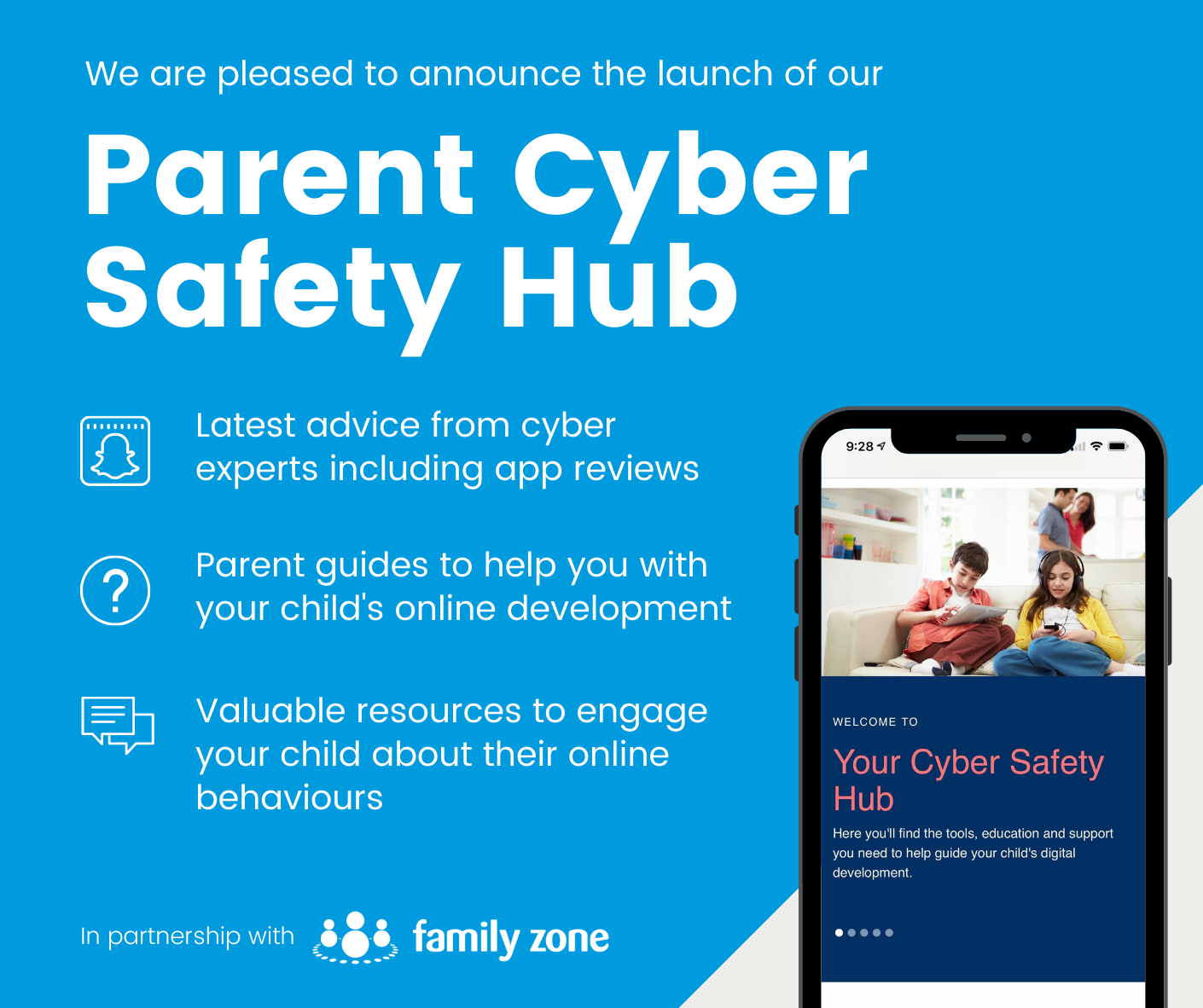Cyber Safety

You've heard of passive smoking? Meet passive screen-time
With growing awareness of online risks, from body-shaming to problem gaming, we’ve learned to become super-vigilant about our kids’ screen-time.
But we may be less aware of how our own digital habits are affecting their health and happiness. A new study suggests the impact of parents' screen-time on children’s development may be severe.
We’ve all been there.
Life with small children can be crazy-making, relentless and - when it’s not stressing us to the max - mindnumbingly boring.
Yes, we would lay down our lives for our kids. Yes, they are inspiring, adorable and fascinating. But also yes, we sometimes - no, make that frequently - need some space from them sooo badly.
Our phones can give us that space, metaphorically speaking. They can connect us back to the adult world, let us chat with friends, have a laugh, discover what’s happening in the wider world.
And that’s quite apart from the practical functions our smartphones allow us to perform: life admin from ordering groceries to booking health appointments and paying bills.
So in a very real sense, spending time on your phone can be a sanity-saver when you’re on your own looking after toddlers. The problem is, it may be making your job harder in the long run, and may even result in developmental delays for your child.
Parents devote only a quarter of their attention to their children while scrolling on their phones, the study found.
A study published last month in the Child Development Journal found extensive smartphone use by parents of young children had surprisingly large effects on the quality and quantity of interaction - especially conversation - between adults and kids, and suggested the consequences “could be far-reaching.”
Specifically, it found that parents devoted only a quarter of their attention to their children while scrolling on their phones.
The researchers asked mothers of toddlers (aged two to three years) to perform three tasks: Browse social media and like videos and articles that interested them; read printed magazines and highlight articles that interested them; and finally, play with the child while the smartphone and magazines were outside the room (uninterrupted free play).
Dramatic reductions
The interactions were then video-taped can analysed frame-by-frame in order to draw conclusions about mother-child interactions along three dimensions: linguistic input (aka mums talking to kids), conversational turns (aka kids and mums talking to each other), and maternal responsiveness (aka the way mums paid attention to kids).
Between them, these variables are the basis for almost every aspect of child development: linguistic, social, emotional, and cognitive.
And all three dimensions were dramatically reduced when mums were on their phones.
“The mothers talked up to four times less with their children while they were on their smartphone,” said lead researcher Dr Katy Borodkin of the Department of Communication Disorders at the Stanley Steyer School of Health Professions, Sackler Faculty of Medicine of Tel Aviv University.
“Moreover, they exchanged fewer conversational turns with the toddler, provided less immediate and content-tailored responses, and more often ignored explicit child bids. Even when they were able to respond while browsing Facebook, the quality of the response was reduced - the mothers kept their responsiveness to a bare minimum to avoid a complete breakdown in communication with the toddler," she added.
Interestingly, exactly the same effect was observed when mums read printed magazines - suggesting there is nothing uniquely detrimental about phone involvement per se.
Explains Dr. Borodkin, "We did not find that one media distracted more than the other. However, it is clear that we use smartphones much more than any other media, so they pose a significant developmental threat.”
Reference: https://www.familyzone.com/anz/families/blog/passive-screen-time-like-passive-smoking
Cyber Safety Hub
We are delighted to introduce you to a new resource made available to you through our partnership with Family Zone - our new school Cyber Safety Hub.
As you may already be aware, our partnership provides your family with access to the Family Zone tools to use at home with your children if you wish. The purpose of the Cyber Safety Hub is to complement those tools with practical guidance and information to further support you in engaging with your children in their digital development. These tools and resources also allow the school and parent body to work together on creating a holistic approach to guiding each student's online journey.
About the Parent Cyber Safety Hub
The Cyber Safety Hub includes resources to help your family better understand the different Family Zone tools available to you and how to use them, plus access to regular cyber safety events to help you stay informed about the latest digital trends.
Also, the Cyber Safety Hub provides expert advice from leading cyber experts, ySafe, on the most pertinent issues and frequently asked questions around platforms like TikTok, Fortnite, Instagram, and more. There are app reviews with age and safety recommendations, along with a range of guides to help ensure healthy boundaries around screen-time & gaming, plus step-by-step instructions for using parental controls and filtering out inappropriate content.
We are very excited to be able to offer you this level of expertise and support. We look forward to working closely with you as we develop the cyber safety conversation within our school community.



